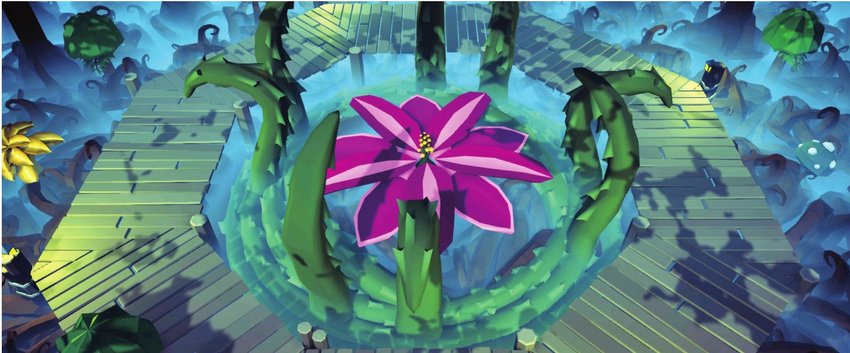
Bounding through dungeons, slashing swords and shaking spears against hordes of giants, slimeballs and golems, players of the video game “Rogues Like Us” enjoy a well-polished adventure. And it was made entirely in renegade fashion by five restless Michigan State University students.
The story of the game’s production doesn’t start in a Silicon Valley gaming studio. It doesn’t even start in a studio.
Development of “Rogues Like Us” began in a southside East Lansing apartment filled with six hulking game design computers.
The rent was paid in full with cash. Patrick Williams, Chris Ulrich, Zach Klegon, Matthew Bearup and Elan Gleiber spent 12-hour worksdays for nearly three years on the passion project, adorning themselves with the moniker Oddbyte Studios.
Though the team graduated in 2016, they put their professional plans on hold to self publish the release, taking freelance jobs to make ends meet. The game eventually launched in May to solid review scores and a growing playerbase. “Rogues Like Us” has sold over 1,000 copies so far.
“Designing a game was a dream people told me wasn’t possible,” Oddbyte lead designer Gleiber said. “From the beginning it was like any other class project.”
As part of a capstone course for MSU’s computer science program, the goal of the initial project was to create a mid-‘80s-style game that would be included in an arcade cabinet comprising other student-made games.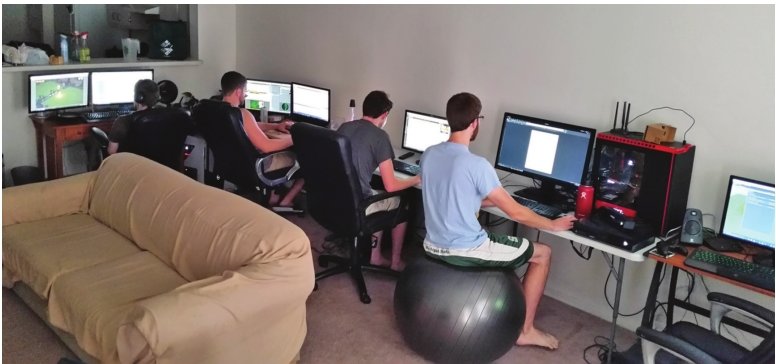
The group got to work, labeling its creation “Dungeoneers.” The game fell into the category of “Rogue-like” games, where the player raids dungeons for treasure, retaining their loot if they die, and are sent back to the beginning of the game.
“It was supposed to be just a showpiece,” animator and 3D artist Klegon said. “It had to work with only three buttons and eight degrees of movement.”
However, by the end of the semester, the group decided MSU’s student arcade was not big enough to house its idea. The team believed a standalone release was possible.
“We thought we could at least sell this out of the back of our cars in a parking lot somewhere,” lead programmer Williams said.
The team needed more time. “We petitioned the head of the department to keep working on it as the second semester project,” Gleiber said. “It was supposed to be four to six months at the most.”
Initial work was done in the MSU Games for Entertainment and Learning Lab, under the supervision of William Jeffrey, MSU Academic Specialist, Instructor and GEL lab manager.
“A bunch of those guys were the cream of the crop. They were passionate, had great ideas and worked very hard,” Jeffrey said. “They were able to make something that was a lot of fun, and I could tell they were on to something. They were excited to put in extra time.”
Every week, the Oddbyte team would come into the lab for a full playthrough evaluation, he said.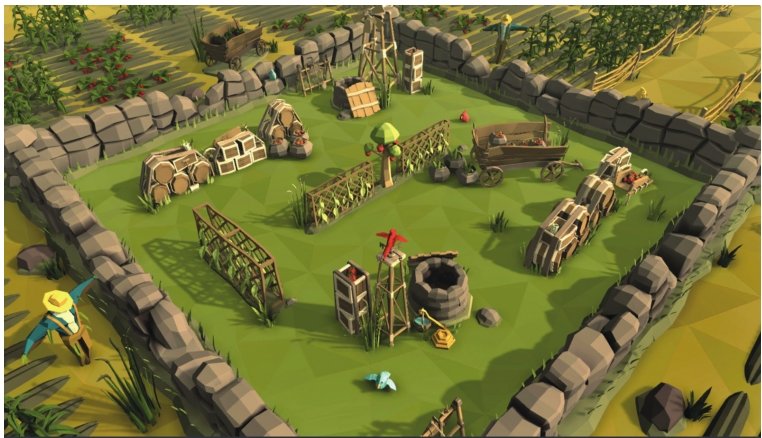
“They would tell me they made changes and I’d play it over again. We would chat and see what will work and could be better,” Jeffrey said. “The idea sounded crazy at first for them to start an indie company, but we gave them another semester to work on it.”
By the time the extended semester was over, the game showed promise.
“They changed the art style and gameplay — it was more refined.”
By the time the group finished its second course, releasing a game became an attainable goal, Jeffrey said.
The original rinky-dink concept of making it a simple arcade game eventually translated into a niché game on Steam.
“Because it was set up in the arcade sense, it was already built to be a Roguelike game. Back then, it wasn’t a dominant genre in the market. There was no other Rogue-like in the art style we chose,” Gleiber said.
“I knew if I didn’t do it, I was going to regret it for the rest of my life,” Gleiber said. “We thought, ‘We have nothing to lose, so let’s get some funding and push for a release on Steam.’” However, the group needed help. An average indie game development studio would employ 50 people to develop a game the size of “Rogues Like Us,” Williams said. To pay salaries and fund a project like this would traditionally cost at least $200,000, he added.
So the group turned to Kickstarter to fund an initial investment. Oddbyte sought $11,200 and with the help of 185 backers, received $12,579. Most investors were friends, family and members of the MSU gaming community. Some donations came from far-off locales, such as Japan or Finland.
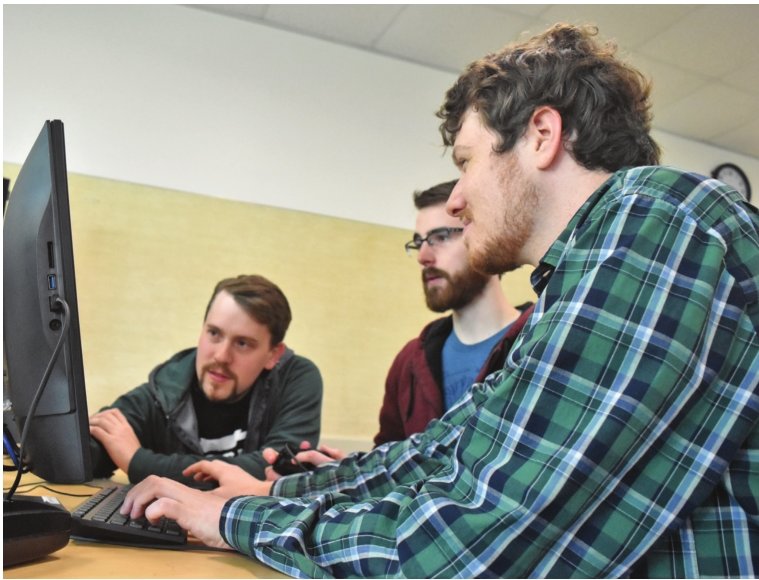 The team put all the money down on an apartment to house their gaming computers and serve as a living space and workstation. None of the designers had a rental history, or stable source of income or credit to lease, but the cash talked.
The team put all the money down on an apartment to house their gaming computers and serve as a living space and workstation. None of the designers had a rental history, or stable source of income or credit to lease, but the cash talked.
“It was enough for five people to just pay rent,” Williams said. “It was four of us in a four bedroom apartment. We basically turned a living room into a game studio with a couch, whiteboard and TV.”
The landlord and maintenance men did not know what to think of the place.
“When they came in, we just told them we all like to play games a lot,” Williams said.
With its battle station ready, Oddbyte’s grind began.
“We’d wake up, sit down at the computer and work until the sun went down and came up again,” Gleiber said.
Work hours were brutal, but fun. “As soon as we woke up, until we went to bed, we worked on ‘Rogues.’ It was nothing to us. We were just having fun making it,” Williams said.
“You could get a little stir-crazy. Same scenery day-in and day-out. We had to take a walk every now and again to take a break,” Klegon said.
Slogging through development, the team managed to put out an early access launch on Steam, where players from all over the world could test the game.
Simultaneously, Gleiber entered the game into the 2016 Seattle Indie Game Competition. It wound up becoming one of the competition’s finalists.
Releasing it on a trial basis enabled the game to receive real criticism, 3D artist Ulrich said.
“We were all friends and didn’t want to criticize each other. People started telling us there were things wrong with the game, and now that we had outside information, we could modify it.”
Some had problems with the art direction.
“I thought it would be a good challenge that would improve myself as an artist; to take a game not quite finished, and completely revamp it into something cohesive,” Ulrich said.
“We redid the style twice, because we didn’t have a good idea and we didn’t go outside of the team for criticism at first,” he added. “I learned it was a good idea to have a lot of people look at my artwork.”
The early access was nervewracking, Gleiber said. “People pointed out what was fun and what wasn’t fun. We tried to work around what players like and enjoy. We see it in a different way than players will, and this was a big lesson learned.”
One reviewer wasn’t impressed, Williams said.
“One guy told us it was ‘nothing special.’ But we flipped his view on it once we worked on the game for another year. We took his feedback and made the game better because of that.”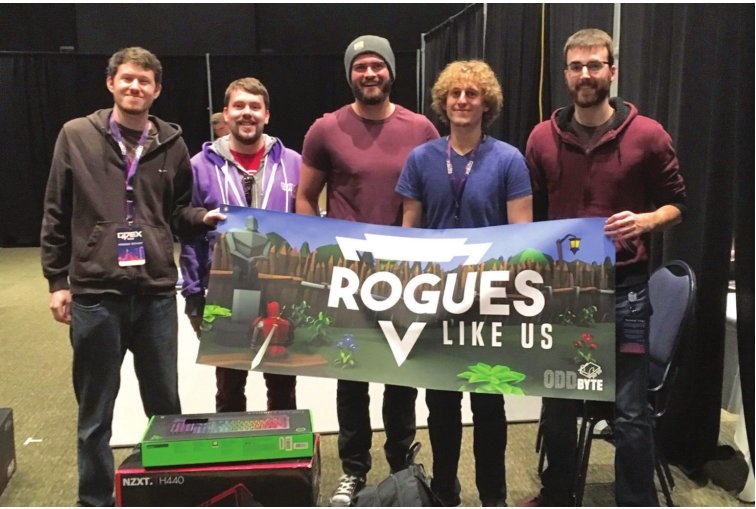
The game also attracted the attention of Austin Patterson, a video game speedrunner and online streamer from Texas. The goal of speedrunning is to finish a game as fast as possible.
“I spent 100 hours in ‘Rogues’ at this point, and went through over 1,000 deaths,” Patterson said.
Patterson attracted a YouTube and Twitch — an online streaming service — audience that was instrumental in spreading the word and finding out bugs before “Rogues Like Us” was formally released to the public.
“There is something endearing about ‘Rogues.’ It feels and looks very retro. When I was a kid, I played these kinds of games,” Patterson said.
“Rogues Like Us” is part of an indie movement in the gaming industry, he said.
“There are only a handful of these kinds of games. This game has a lot of potential, but it’s a little bare bones right now. When they fill things out, I think a lot of people will come in and see it is a really good game,” he said.
Fixing the bugs discovered in early access, the final game launched in May.
“Even though it wasn’t like a huge hit, it did okay,” Gleiber said. “People had fun playing it and let us know they enjoyed it.”
Williams said “Rogues Like Us” is all any company wants to talk about in the job interviews he’s done so far.
“They said they could see the passion, and were impressed we got that far without any money. They wanted someone passionate about gaming to work for them and could see it in ‘Rogues Like Us.’” Jeffrey said “Rogues Like Us” proves it doesn’t take a move to the East or West Coast to be a successful game developer.
“At launch, I bought them a cheap bottle of champagne and told them to celebrate, because I knew they wouldn’t take the time to,” Jeffrey said.
“It’s crazy to see what a couple dudes working in a single apartment eating Ramen and working their butts off can do with enough passion and talent.”
Support City Pulse - Donate Today!
Comments
No comments on this item Please log in to comment by clicking here